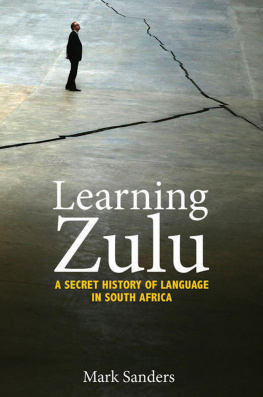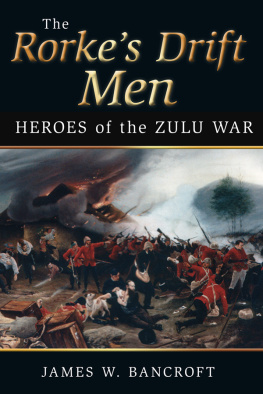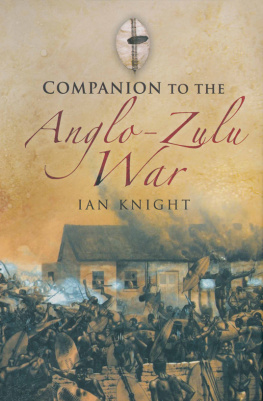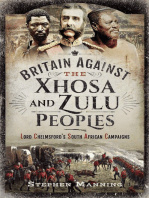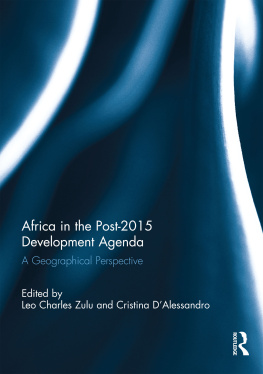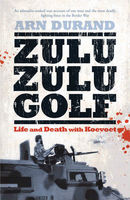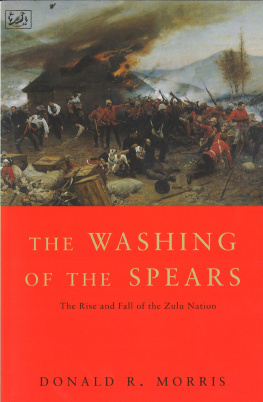
Learning Zulu
translation
TRANSNATION
SERIES EDITOR EMILY APTER
A list of titles in the series appears at the back of the book.
Learning Zulu
A SECRET HISTORY OF LANGUAGE IN SOUTH AFRICA
Mark Sanders
PRINCETON UNIVERSITY PRESS
PRINCETON AND OXFORD
Copyright 2016 by Princeton University Press
Published by Princeton University Press, 41 William Street, Princeton, New Jersey 08540
In the United Kingdom: Princeton University Press, 6 Oxford Street, Woodstock, Oxfordshire OX20 1TW
press.princeton.edu
Jacket image courtesy of PA Images.
Reprinted with the permission of Scribner, a Division of Simon & Schuster, Inc., from Cry, the Beloved Country by Alan Paton. Copyright 1948 by Alan Paton. Copyright renewed 1976 by Alan Paton. All rights reserved.
Reprinted by permission of The Random House Group Limited, from Cry, the Beloved Country by Alan Paton. Published by Jonathan Cape.
Scriptures taken from the Bible in isiZulu (Zulu) 1959/1997 Bible Society of South Africa 1959, 1997. Used with permission. All rights reserved.
Excerpt from Sibusiso Nyembezi, Mntanami! Mntanami! in epigraph to chapter two used by permission of Pearson Marang (Pty) Limited.
All Rights Reserved
ISBN 9780-691167565
Library of Congress Control Number: 2015939780
British Library Cataloging-in-Publication Data is available
This book has been composed in Minion Pro
Printed on acid-free paper.
Printed in the United States of America
10 9 8 7 6 5 4 3 2 1
To my teachers
Contents
Introduction
NGICELA UXOLO
I stand before the class, telling the students who I am, where I come from, and what brings me to the school. I notice as Mr. Nzuza, who is standing at the back of the classroom beside my desk, discreetly opens the book in which I have been taking notes. Although I am not exactly another pupil, he is the teacher and he has every right to examine my notes. He sees that I see him. I continue to speak. Maybe he wants me to have seen himto be aware that he is watching, but also to know that he is curious to read what I have written. I cannot know whether this is what he intended. Yet my guess at itwhich is already shaping the memoryleaves me with a twofold awareness: he is reading, and he is watching.
It is within the influence of this awareness that I embark on this book. I have to trust the reader. I have to trust that the one whom I picture as watching me as I write would like to think that he, or she, is reading something I wrote while he, or she, was not watching. If, for the reader whom I picture, to want this is to want the impossible, to imagine writing for such a reader, that is impossibility itself. Yet there is no writing without that step. Not for me, not with this book.
Our text is Ngicela uxolo, a play by Nkosinathi I. Ngwane, an author I have never heard of. I am provided with a copy of the book on my first day. How uncanny that, only a few weeks before, I was reading an old radio play by D.B.Z. Ntuli with exactly the same title: Ngicela uxolo (I beg forgiveness). Like the puns that came to me as I took my first steps back into learning Zulu, as I worked with my teacher Eckson Khambule in New York City a few months before, the words ngicela uxolo had become a text for transference, a way toward finding myself in the language. Finding myselfit is easy to say, and to say, dismissively, of the one learning Zulu: he is finding himself, he is still finding himself. But there is more to it: in speaking a language, one appropriates the language, makes it ones own. One becomes a self by virtue of speaking that language by assuming the position of I. Ngi- ngicelangicela uxolo.
The assumption of this position is, for me, not without inhibition. To speak is to bite ones tonguesuch was the first coded sentence when, with Eckson, I began to play on words. To assume the position of speaking subject was to assume guilt, and to inflict punishment upon oneself. Although I have translated the expression ngicela uxolo as I beg forgiveness, on its own the word uxolo can mean peace or calm. In uttering the plea ngicela uxolo, one takes up the position of speaking subject. One makes the language ones own as one speaks, but one also declares oneself guiltyof having committed a wrong, of having failed to do what was expected, of having, by some act or omission, broken the peace.
Mshazias Mr. Nzuza is usually called by the other teachers, who use his isithakazelo, or clan praise namerouses his Grade 12 Zulu class, which, despite my rudimentary command of Zulu, I have been invited to attend. His powerful voice commands the entire classroom in a call and response in which the students answer his questions, and are expected to finish his sentences. Introducing the play, Mshazi utters a series of words, of which I catch only a few, but which includes the word iphutha (error, mistake, wrong), then ucela (you ask or beg). There is a pause, upon which the pupils conclude in one voice: uxolo. Will this imprecation keep following me, as if they were my first words, another version of speaking as biting my tongue? Of course, ngicela uxolo is probably not the first sentence that one utters when one learns a new language; Mr. Fani Ntombela, a senior teacher, puts forward ngilambile and ngomileI am hungry, I am thirstyas likelier candidates. One learns the sentence ngicela uxolo later, perhaps too late, long after one has found reason to utter it by stating a hunger and a thirst that, because they are in excess of sheer need, are experienced as greed, as a taking away from others.
It is April 2008, and I have come to Jozini to learn Zulu. You reach Jozini by driving up the side of a mountain. Down to the left lies the vast Jozini Dam. Formerly known as the Pongolapoort, the dam is one of South Africas largest. The dam is a tranquil expanse of water cradled between the peaks of the Ubombo, fields of sugar cane stretching from its shores into the fever trees and scrub. Having reached the high point of the drive, you descend along the narrow and winding road to reach the town center, which is built on the hillside south of the dam wall. To the north lies Ingwavuma, and the border with Swaziland is not far away. To the east stretch the plains of Makhathini and eventually the sandflats of Mhlabuyalingana, up to Kosi Bay and Manguzi on the Indian Ocean, and Mozambique.
Eckson has helped to arrange my visit with Mr. N. H. Mkhwanazi, the principal of Sinethezekile Combined School, where Eckson taught before he came to Teachers College, Columbia University, for his Ph.D. When I reach the turnoff from the N2 highway, having driven through Mpumalanga from Johannesburg, I stop and call Mr. Mkhwanazi. I am to drive to the BP garage, where Mr. Mthembu, his vice-principal, will meet me to show me the way to the principals house, where I will be staying. I am introduced to Nokuthula, Mr. Mkhwanazis wife, who is waiting for us. She greets me warmly and shows me to the spare room, where I unpack my things. Later, Mkhwanazi arrives, and Nokuthula serves us dinner at the table. It gets dark, and candles are produced; there has been no electricity for a week, not because of the load shedding that Louise and I have become used to in Johannesburg, but thanks to a damaged transformer. Being without electricity is clearly frustrating, especially for Nhlanhla, their adolescent son, who enjoys watching television. Spirits seem low as a result, and everyone is early to bed.
The following day I drive to the school, which lies on the plain down from the dam wall to the east. I am introduced to Mshazi, who takes me to his office, where I receive from him my books:
Next page
